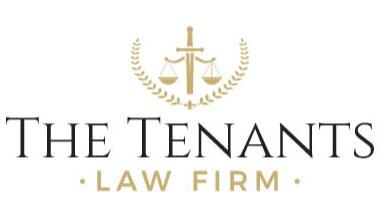What Should Los Angeles Renters Know About REAP?
If you are a renter in Los Angeles, then it is important to be familiar with the Rent Escrow Account Program (REAP), which is run by the Los Angeles Housing Department (LAHD), because it may protect you from overpaying for a bad living situation. The City of Los Angeles housing program aims to find solutions to some of the most persistent and challenging safety, health, and habitability issues found in rental properties across the city. In addressing these issues, the program encourages landlords to take better care of their property, ensures that the city's affordable housing is maintained, and protects low-income renters from blight and less than acceptable housing standards. Ultimately, REAP’s goal is to ensure that owners keep properties in a habitable and safe condition by making necessary repairs to the property.
Renters who live in a unit affected by the REAP program will receive a reduction in the amount of money they owe for rent. Typically, the rent reduction is between ten percent and fifty percent of the amount stated in the original lease, depending on the severity of the housing code violations. For REAP properties, the tenants pay their reduced rent either using an escrow account managed by the LAHD or pay the reduced rate directly to the landlord.
What Can Release of REAP Escrow Funds Be Used For?
Once the funds are deposited into the escrow account, the landlord can only access the money via an application process to ensure that the landlord is using the funds for an acceptable reason. LAHD only allows landlords to use escrow funds for specific reasons, including:
-
Expenses sustained by renters due to uninhabitable conditions,
-
Voluntary relocation expenses,
-
Performing repairs,
-
Court judgments,
-
Paying for utilities, or
-
Other essential services.
LAHD specifies that a landlord can not use requested funds to pay for property taxes, mortgage payments, or repairs on other properties.
How Are Los Angeles Properties Placed into REAP?
A property is accepted into REAP when LAHD has issued citations for Housing Code violations to the owner of the property, but the owner has failed to make the necessary repairs in the allotted time. If a property is accepted into REAP, there may be a General Manager's Hearing, in which the landlord may contest the property's acceptance. During the appeal of the REAP placement decision, it will be impossible for the renter to pay their rent using the escrow account until there is a final decision on the appeal. Once the decision to place a property into REAP is made final, the escrow account will become usable.
Is the Tenant Notified of the Property Being Accepted into REAP?
When a property falls under the purview of REAP, the tenant will receive a notice in the mail. This notice will provide renters with information regarding the nature of the violation, as well as the details on the amount of rent reduction and how to pay the rent through the escrow account. In certain circumstances, it may be necessary for an outreach contractor who represents REAP to visit the property and provide the renter with additional information on the details of the situation.
When a renter is living in a REAP property, there are unique challenges that may arise. If you are facing some of these challenges, you may benefit from the guidance of the experienced legal team at Tenants Law Firm. Fill out our easy to use online contact form, so we can begin to explore the options you have available.
